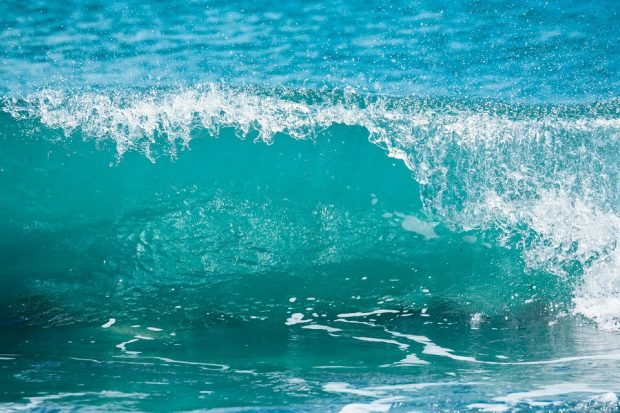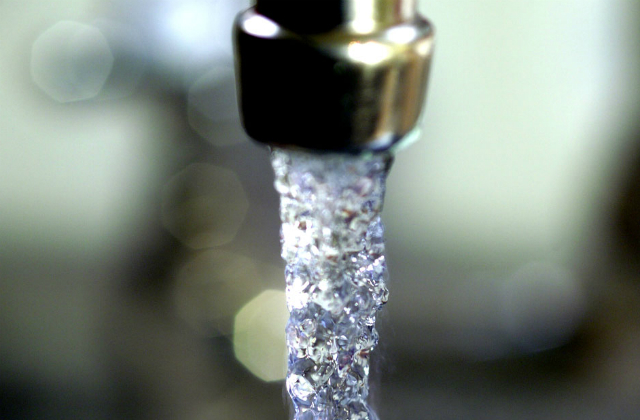On the blog today we look at the microbeads ban taking effect, air quality and the Ofwat Freeze Thaw Review.
World leading microbeads ban takes effect

This morning there was widespread coverage in the Daily Mail, Daily Telegraph, Daily Mirror, Sun, BBC Breakfast and Sky News following the Secretary of State’s announcement that the ban on the sale of products containing microbeads has now come into effect.
From today, retailers across England and Scotland will no longer be able to sell rinse-off cosmetics and personal care products that contain microbeads – the tiny pieces of plastic often added to products such as face scrubs, soaps, toothpaste and shower gels.
This announcement follows January’s ban on the manufacture of products containing microbeads, meaning that we now have one of the world’s toughest bans on microbeads in place. It was warmly welcomed by stakeholders such as Fauna & Flora International and the Marine Conservation Society, both members of the microbeads coalition.
Environment Secretary, Michael Gove, said:
Microbeads might be tiny, but they are lethal to sea creatures and entirely unnecessary.
We have led the way in banning these toxic pieces of plastic, but this is by no means the end in our fight. We will now press ahead with our proposals for a deposit return scheme and ban other damaging plastic such as straws.
With the microbeads ban now in place, the Government is exploring how other microplastic sources enter our marine environment. Last month £200,000 was pledged by the Government for scientists at the University of Plymouth to explore how tiny plastic particles from tyres, synthetic materials like polyester, and fishing gear – such as nets, ropes and lines – enter our waterways and oceans.
Financial Times on Air Quality
Today’s FT wrongly suggested the government has “watered down” plans to end the sale of petrol and diesel cars by 2040.
The article suggests that in the forthcoming Road to Zero strategy the previous language, saying there is a mission to put the UK at the forefront of manufacturing of zero-emission vehicles, has been weakened.
But the claims are inaccurate.
A government spokesperson said:
Our commitment is not being watered down. We will end the sale of new conventional petrol and diesel cars and vans by 2040, as set out in the roadside emissions plan last July.
Ofwat Freeze Thaw Review

Today the Daily Telegraph, Guardian and Financial Times report on Ofwat’s review into how water companies dealt with the extremely cold weather in March this year, which resulted in burst water pipes and severe water outages.
The report is highly critical of a number of water companies and shows that more than 200,000 customers did not have water supply for more than four hours and tens of thousands were left off supply for days. Ofwat found too many incidences of poor advanced planning, inadequate communication with customers and a lack of basic support such as bottled water.
However, the review also highlighted good performance by a number of water companies which shows what can be achieved with suitable planning and investment.
Minister Coffey announced this review in the House of Commons in March, stating government would act decisively on recommendation to ensure water companies work harder to minimise disruption to customers in the future.
Environment Minister Thérèse Coffey said:
This detailed review by Ofwat has identified significant failings from a number of water companies.
These are completely unacceptable, especially when the good performance of other water companies shows what can be achieved.
Water companies now have a chance to address the issues raised as they develop action plans over the summer. If they do not, we will support Ofwat in any enforcement action and will not hesitate to take regulatory action ourselves.
Paul Hickey, Deputy Director of water resources at the Environment Agency said:
At the Environment Agency we have been very clear with water companies that we expect them to focus on improving resilience and infrastructure, both to secure water supply and reduce pollution to the water environment.
Poor planning and badly maintained assets can result in customers and the environment suffering. If supply pressures had lasted longer over abstraction and river flows lows could have caused damage to ecosystems and wildlife. We expect water companies to fully consider the report’s findings and take steps to ensure that their supplies are more resilient and that the environment is better protected.
There is further coverage in The Times, Daily Mail and on The Today Programme and BBC Breakfast.